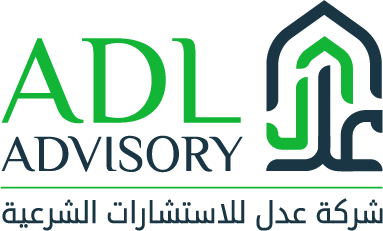
Are SAFE & Convertible Notes Shariah Compliant?
Many startups – including those in the Halal & Islamic Finance space – use instruments like convertible notes and SAFE agreements for their early-stage fundraising. This article highlights some shariah concerns related to the contracts and opens doors to further discussions.
Definitions
Convertible Note is defined as an investment vehicle often used by seed investors investing in startups who wish to delay establishing a valuation for that startup until a later round of funding or milestone. Convertible notes are structured as loans with the intention of converting to equity. The outstanding balance of the loan is automatically converted to equity at a specific milestone, often at the valuation of a later funding round. In order to compensate the angel investor for the additional risk of investing in the earlier round, convertible notes will sometimes have additional clauses, such as caps, and or discounts. (Source: FundersClub)
SAFE or Simple Agreement for Future Equity is defined as a financing contract that may be used by a startup company to raise capital in its seed financing rounds. It gives the investor the right to receive equity of the company on certain triggering events, such as future equity financing or the sale of the company. The price of the equity on conversion is lower than the price of the securities issued to other investors, based on either a: Discount rate or a Valuation cap. SAFE has no maturity date and no accruing interest. Investors receive only a right to convert their SAFEs into equity at a lower price than the investors in the subsequent financing. (Source: Thomson Reuters Practical Law)
Characteristics
Both convertible notes and SAFE financing share the following common characteristic:
- A loan in the beginning, with or without interest
- Possible equity in the future
Basically, the investors want to invest, however, since the future of the startup is uncertain, they come with a loan. Next, if there is another fundraising round with a certain threshold, they’d convert their loan amount to equity at a discounted rate, through a discount or a valuation cap. This way the principal amount is guaranteed against future uncertainty, and if there is a fundraising round, equity is obtained at discount as well.
Shariah Concerns
According to the principles of shariah, both contracts are highly problematic, because of several reasons:
- If the note itself is an interest-bearing one, which is what usually the convertible note is, then fundamentally it’s an interest-bearing loan and hence it’s riba – very straight forward.
- If the financing or the note is interest-free, it is still attached to future equity at a discounted price – either by a discount rate or a valuation cap. In both cases, it is a benefit attached to the loan. In Shariah, a qard or loan contract cannot be in any way combined with another contract that may bring benefit to the lender. Any additional benefit obtained through a loan is deemed riba.
One would argue that SAFE is not a loan, rather a sale of right. The counter-argument would be to look at the liquidity event clauses and accounting treatment. The treatment in one or both cases is usually similar to a debt treatment, which compels us to treat it is as a loan from a shariah perspective.
- SAFE is often seen as a right to future equity. From that perspective, if the agreement is perceived as a sale agreement of the future equity, then it’d be considered including substantial gharar or uncertainty related to the subject matter – or the number of stocks. This is due to the uncertainty of the pricing of the stocks, which is variable based on future events. Both the price and the subject matter of the sale becomes uncertain, whereas the specification of price and the subject matter in a sale contract is a primary condition.
- If the financing is considered a Musharakah partnership contract, a partner cannot guarantee the principal of the other. The reason behind this is, guaranteeing the principal makes it a loan contract, and future profits would be deemed as riba.
Riba is the only sin that was cursed in such a way. The one involved in Riba has been suggested to beware for a war with Allah SWT and His Messenger SAW.
It is mentioned in Al-Quran:
َـٰٓأَيُّهَا ٱلَّذِينَ ءَامَنُوا۟ ٱتَّقُوا۟ ٱللَّهَ وَذَرُوا۟ مَا بَقِىَ مِنَ ٱلرِّبَوٰٓا۟ إِن كُنتُم مُّؤْمِنِينَ – فَإِن لَّمْ تَفْعَلُوا۟ فَأْذَنُوا۟ بِحَرْبٍۢ مِّنَ ٱللَّهِ وَرَسُولِهِۦ ۖ وَإِن تُبْتُمْ فَلَكُمْ رُءُوسُ أَمْوَٰلِكُمْ لَا تَظْلِمُونَ وَلَا تُظْلَمُونَ
O believers! Fear Allah, and give up outstanding riba if you are ˹true˺ believers. If you do not, then beware of war with Allah and His Messenger! But if you repent, you may retain your principal—neither inflicting nor suffering harm. (Al-Quran, 2:278-279)
Alternatives
A few alternatives to this shariah-wise risky instrument would be as following:
- Plain interest-free loan contract, without any attachments to any future equity or benefit.
- Plain equity contract, for ordinary shares.
The above two are no real alternatives to the desired outcome that convertible notes and SAFE financing have. However, back-to-basics, those two are above any shariah concerns and doubts.
There are two more alternatives that serve a closer outcome to the original purpose:
- Equity (ordinary shares) contract with the investors, whereby the startup would issue a unilateral undertaking to give hibah or gift of a number of shares at a future fundraising event.
- Interest-free loan contract in the beginning; then on the date of conversion, a new equity subscription agreement, whereby the purchase price would be settled with the loan receivable. This would be subject to the following conditions:
- The loan is an interest-free loan
- In the event of conversion, the borrower and lender both would have an option to accept the conversion or reject, and it would not be binding on any party
- The purchase price would be the the-then market price of the stocks or the same price that is offered to other new investors – without any preference or discount given to the lenders
- Additionally, shares should be transferred asap after the subscription agreement
Conclusion
Riba is what we try to avoid primarily when it comes to Halal and Islamic Finance. If we insist on using riba or doubtful instruments to finance Halal and Islamic Finance companies, it’s really a matter of concern. As ambassadors of Islamic Finance, we should put all our efforts to fight riba, in every way we can.
Please share your feedback and let’s continue the discussion. Thanks.
Further reading
1. AAOIFI Shariah Standard (SS) no. 12 on Musharakah, SS 59 on Sale of Debt and SS 19 on Loan
2. The Fiqhi ruling of Venture Capital financing (الأحكام الفقهية للتمويل برأس المال الجرئ) by Dr Yazid bin Abdur Rahman, published by Bank Aljazira
